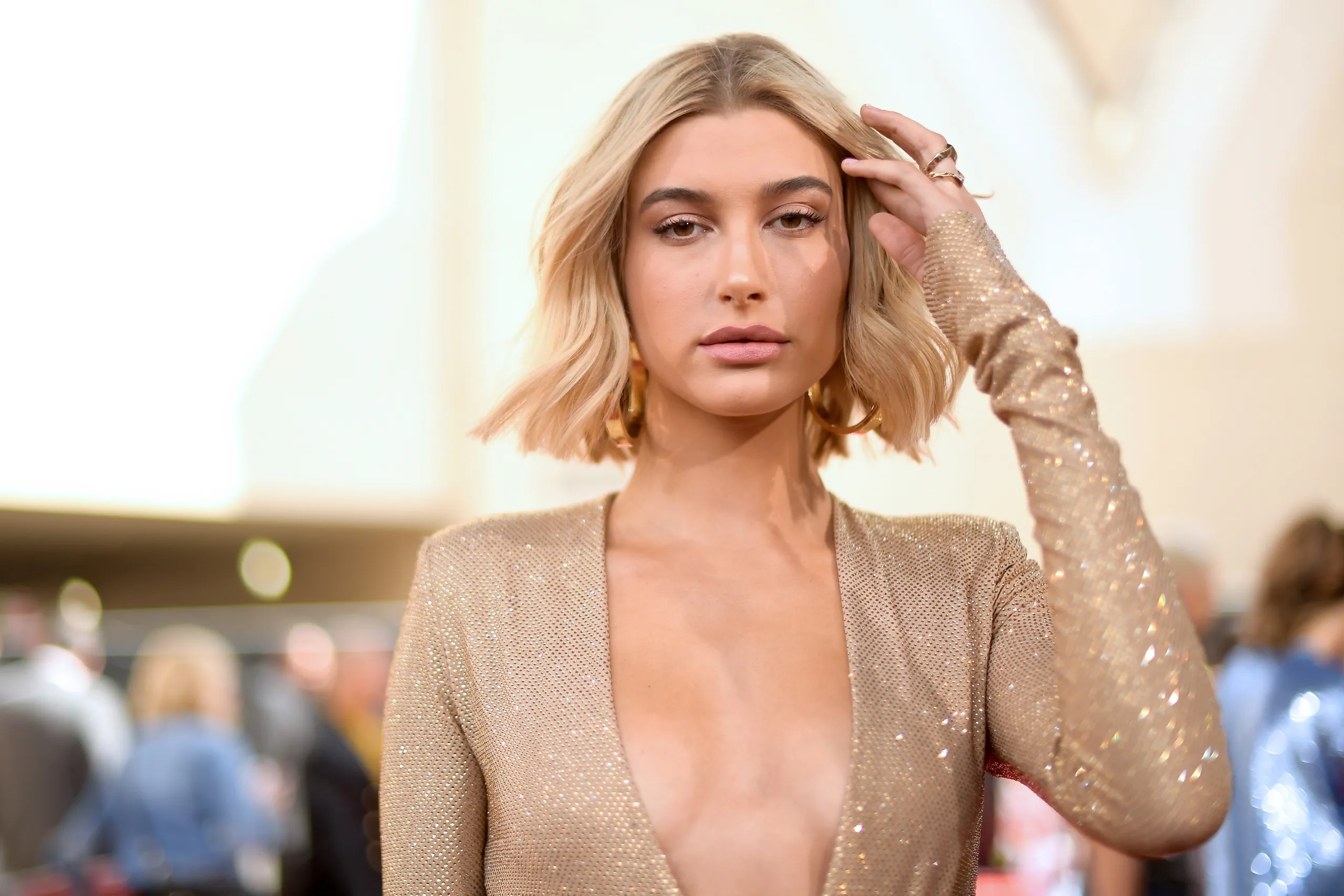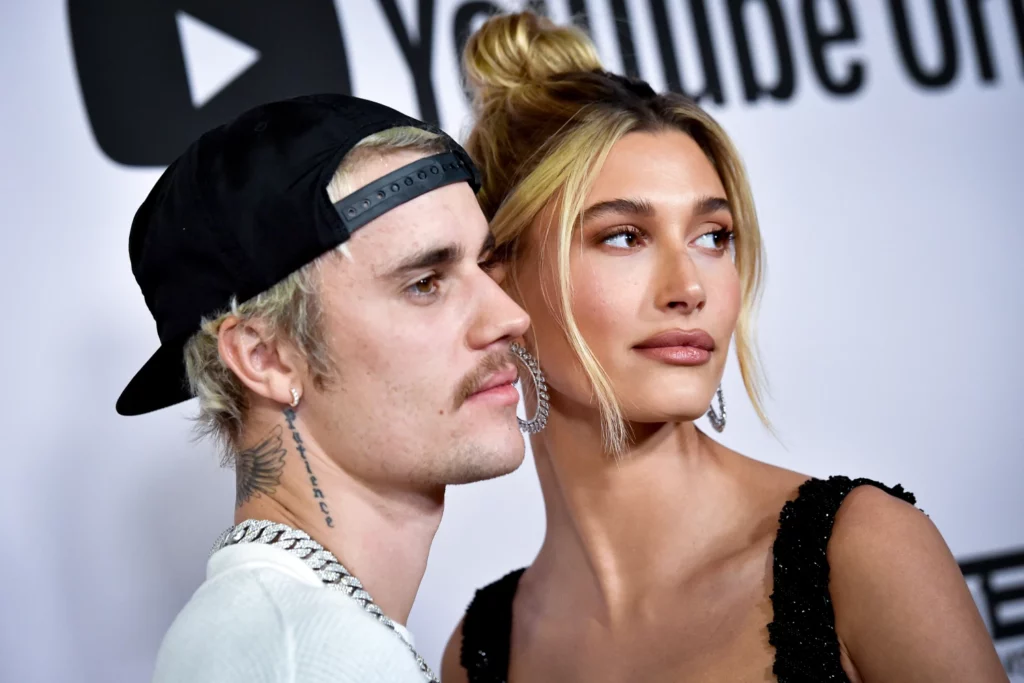Hailey Bieber, the renowned model and social media sensation, is no stranger to the spotlight—both for her work and for the controversies that seem to follow her. Married to pop star Justin Bieber, she has carved out a niche in the fashion industry as a prominent figure representing major brands like Tommy Hilfiger and Ralph Lauren. Yet, amid her successes, she finds herself frequently embroiled in discussions about her appearance, particularly regarding allegations of plastic surgery. Recently, she took a strong stand against these claims, sending ripples through the celebrity world.

A Controversial Claim Sparks Legal Action
In 2020, plastic surgeon Dr. Daniel Barrett made headlines after he insinuated in a TikTok video that Hailey Bieber had undergone multiple cosmetic procedures. His comments included the assertion that changes in her facial features were not simply a result of puberty, stating,
“That doesn’t happen from puberty or growing.”
This accusation caught Bieber’s attention, leading to a fierce legal confrontation.
Bieber’s legal team swiftly responded by issuing a cease-and-desist letter to Dr. Barrett. According to E! News, the letter outlined multiple allegations against the surgeon, accusing him of utilizing her likeness to propagate false narratives about her appearance. The document highlighted a range of violations, including
“misappropriation of name, likeness, image and persona for commercial purposes, misrepresentation, defamation, slander, false light,”
among others.
Hailey Takes a Stand
Bieber’s decision to pursue legal action demonstrates her unwavering stance against body shaming and false narratives. She has always been vocal about her skincare routine and the realities behind maintaining her looks, so when Barrett’s video went viral, she felt it was essential to defend her integrity.
Dr. Barrett, in response to the cease-and-desist notice, expressed his surprise at the legal threat, stating to TMZ that he intended to raise awareness about the plastic surgery industry rather than defame the model. This situation sparked a broader conversation about the ethics surrounding the use of celebrity images in discussions about beauty standards and plastic surgery.
Social Media Backlash and Celebrity Scrutiny
Hailey’s challenges did not stop with Barrett. She also took to Instagram to confront social media accounts that shared altered images of her purported transformation. In a passionate post, she exclaimed,
“Stop using pics that are edited by makeup artists! This photo on the right is NOT what I look like … I’ve never touched my face so if you’re gonna sit around and compare me at 13, and then me at 23, at least use a natural photo that wasn’t edited so crazy.”
This statement reflects her frustration with the unrealistic beauty standards perpetuated by social media, an issue that many celebrities face in the digital age.
Navigating the Fame Game
As a prominent figure in the public eye, Hailey Bieber’s experiences highlight the ongoing conversation about the pressure placed on women, particularly in the entertainment industry. Despite being the daughter of actor Stephen Baldwin, Bieber has successfully established her own identity and brand, which inevitably subjects her to scrutiny.
The conversation surrounding her appearance is not merely about aesthetics; it speaks to broader themes of self-acceptance and authenticity in an age dominated by edited images and filtered realities. By confronting the plastic surgery accusations head-on, Bieber not only defends her personal narrative but also encourages others to embrace their natural selves amidst the noise of social media.
Hailey Bieber’s recent legal skirmishes with Dr. Barrett and her candid remarks on social media shed light on the complexities of fame and the pressures of public scrutiny. As she continues to navigate the highs and lows of celebrity life, her commitment to authenticity serves as a reminder that beauty is multifaceted and subjective. In a world quick to judge based on appearances, Bieber’s strong stance advocates for a more honest and compassionate dialogue about beauty standards.

